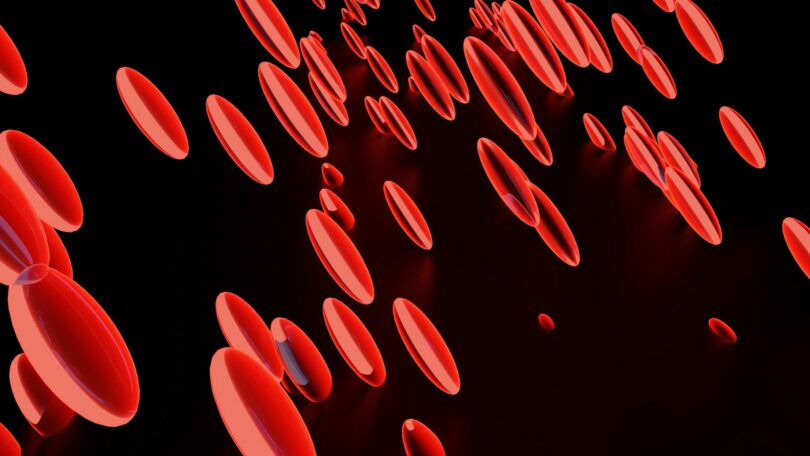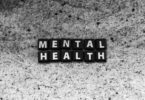How to Increase Blood in the Body?
Maintaining a healthy level of increase blood in the body is vital for overall health. Blood plays a crucial role in transporting oxygen and nutrients to different parts of the body and removing waste products. A deficiency in blood—often referred to as anemia—can lead to fatigue, dizziness, shortness of breath, and even more severe complications if not addressed.
This comprehensive article will guide you through natural, dietary, medical, and lifestyle methods to effectively increase blood in your body.
1. Introduction
Blood is life. Without it, oxygen and essential nutrients wouldn’t reach the tissues and organs. Many people around the world suffer from low blood count, especially in developing countries due to poor nutrition, infections, and chronic diseases. The good news is that there are natural and medical ways to increase blood production and improve your overall health.
2. Understanding Blood and Its Components
Blood is made up of:
-
Red Blood Cells (RBCs) – carry oxygen from the lungs to the rest of the body.
-
White Blood Cells (WBCs) – fight infections.
-
Platelets – help in blood clotting.
-
Plasma – a fluid that carries the cells and various proteins throughout the body.
When we talk about “increasing blood,” we generally mean increasing red blood cells (RBCs) or hemoglobin levels, since they are most responsible for oxygen transport.
3. Causes of Low Blood Count
There are several reasons why your body may not produce enough blood:
-
Iron deficiency
-
Vitamin B12 or folate deficiency
-
Blood loss due to injury, menstruation, or surgery
-
Chronic diseases (e.g., kidney disease, cancer)
-
Bone marrow disorders
-
Infections or autoimmune diseases
4. Symptoms of Low Blood Levels
If your body doesn’t have enough blood or hemoglobin, you might experience:
-
Constant tiredness
-
Pale or yellowish skin
-
Shortness of breath
-
Dizziness or lightheadedness
-
Cold hands and feet
-
Headaches
-
Irregular heartbeat
5. Dietary Ways to Increase Blood
The most effective way to increase blood naturally is through a well-balanced diet. Focus on:
-
Iron-rich foods (for hemoglobin)
-
Vitamin C (helps with iron absorption)
-
Folate and Vitamin B12 (for red blood cell production)
-
Protein-rich foods (building block of hemoglobin)
Let’s explore these in more detail.
6. Iron-Rich Foods
Iron is a key component of hemoglobin. Without enough iron, your body can’t produce adequate red blood cells. Include these in your diet:
Animal Sources (Heme Iron – better absorbed)
-
Beef, lamb, and goat meat
-
Chicken and turkey
-
Liver and organ meats
-
Fish like tuna, salmon, and sardines
-
Eggs
Plant Sources (Non-heme Iron)
-
Spinach and other leafy greens
-
Lentils and chickpeas
-
Tofu and soybeans
-
Pumpkin seeds, flaxseeds
-
Fortified cereals and whole grains
Tip: Pair plant-based iron with vitamin C (e.g., citrus fruits, tomatoes) for better absorption.
7. Foods Rich in Folate and Vitamin B12
Folate (Vitamin B9) and B12 are essential for DNA synthesis and red blood cell formation.
Folate-rich Foods
-
Dark green leafy vegetables
-
Beans and lentils
-
Avocados
-
Brussels sprouts
-
Asparagus
-
Beets
Vitamin B12-rich Foods
-
Eggs
-
Dairy products like milk and yogurt
-
Meat and poultry
-
Fortified cereals
-
Nutritional yeast
Vegans should consider B12 supplements, as plant-based foods lack this vitamin.
Read More: Make Money Strategies 2025: The Ultimate Guide to Financial Success
8. Foods that Enhance Iron Absorption
Certain nutrients and food combinations help the body absorb iron better:
-
Vitamin C-rich foods: Oranges, lemons, strawberries, bell peppers, broccoli
-
Beta-carotene foods: Carrots, sweet potatoes, apricots
-
Avoid: Tea, coffee, and calcium-rich foods at the same meal as iron-rich foods—they reduce iron absorption.
9. Herbal Remedies to Increase Blood
Nature has provided several herbs that may support blood production:
1. Nettle Leaf (Urtica dioica)
Rich in iron, Vitamin C, and chlorophyll. Can be consumed as a tea.
2. Moringa
High in iron and other vital nutrients.
3. Dandelion Root
Supports liver and improves iron absorption.
4. Yellow Dock
Helps increase iron levels naturally.
Always consult a healthcare provider before starting any herbal treatment.
10. Lifestyle Changes for Healthy Blood Production
Besides food, your lifestyle plays a role in how well your body produces blood.
Stay Hydrated
Drink plenty of water to keep blood volume healthy and help kidneys function properly.
Avoid Alcohol and Smoking
Alcohol reduces red blood cell production, and smoking affects oxygen-carrying capacity.
Get Quality Sleep
Rest helps the body heal and produce blood efficiently.
11. Exercises to Boost Circulation and Blood Cell Production
Physical activity stimulates the production of red blood cells and improves circulation.
Recommended Exercises
-
Brisk walking or jogging
-
Cycling
-
Swimming
-
Resistance training
-
Yoga and stretching
Exercise also increases lung capacity, which improves oxygen uptake.
12. Medical Treatments for Blood Deficiency
If natural methods don’t work or your anemia is severe, medical intervention may be necessary.
Common Medical Treatments
-
Iron supplements (oral or intravenous)
-
Folic acid and B12 injections
-
Erythropoietin injections (stimulate RBC production)
-
Blood transfusions in extreme cases
-
Treating underlying conditions like ulcers, kidney disease, or chronic inflammation
Never self-medicate. Always consult a doctor before starting any treatment.
13. Supplements for Increasing Blood
If diet alone is not sufficient, supplements may help:
-
Iron supplements: Ferrous sulfate, ferrous gluconate
-
Folic Acid tablets
-
Vitamin B12 capsules or injections
-
Multivitamins with iron and B-complex
Note: Iron supplements can cause constipation, so take them with plenty of water and fiber.
14. Special Considerations for Women and Children
Women
Due to menstruation, pregnancy, and childbirth, women are at higher risk of anemia. They need more iron, especially during pregnancy and lactation.
Children
Rapid growth in children increases the need for iron and nutrients. Provide them with:
-
Iron-fortified cereals
-
Fruits and veggies
-
Lean meats and eggs
15. When to See a Doctor
If you suspect you have low blood, consult a physician for tests such as:
-
Complete Blood Count (CBC)
-
Iron and Ferritin Levels
-
Vitamin B12 and Folate levels
Symptoms like extreme fatigue, chest pain, or shortness of breath warrant immediate attention.
16. Final Thoughts
Increase Blood is essential for life, and maintaining its healthy levels is key to physical and mental well-being. Most blood deficiencies can be corrected through:
-
A nutrient-rich diet
-
Regular exercise
-
Good lifestyle choices
-
Medical care when necessary
By being proactive and making small but consistent changes, you can boost your blood count and enjoy a healthier, more energetic life.
Read More: https://afgaryanews.us/






